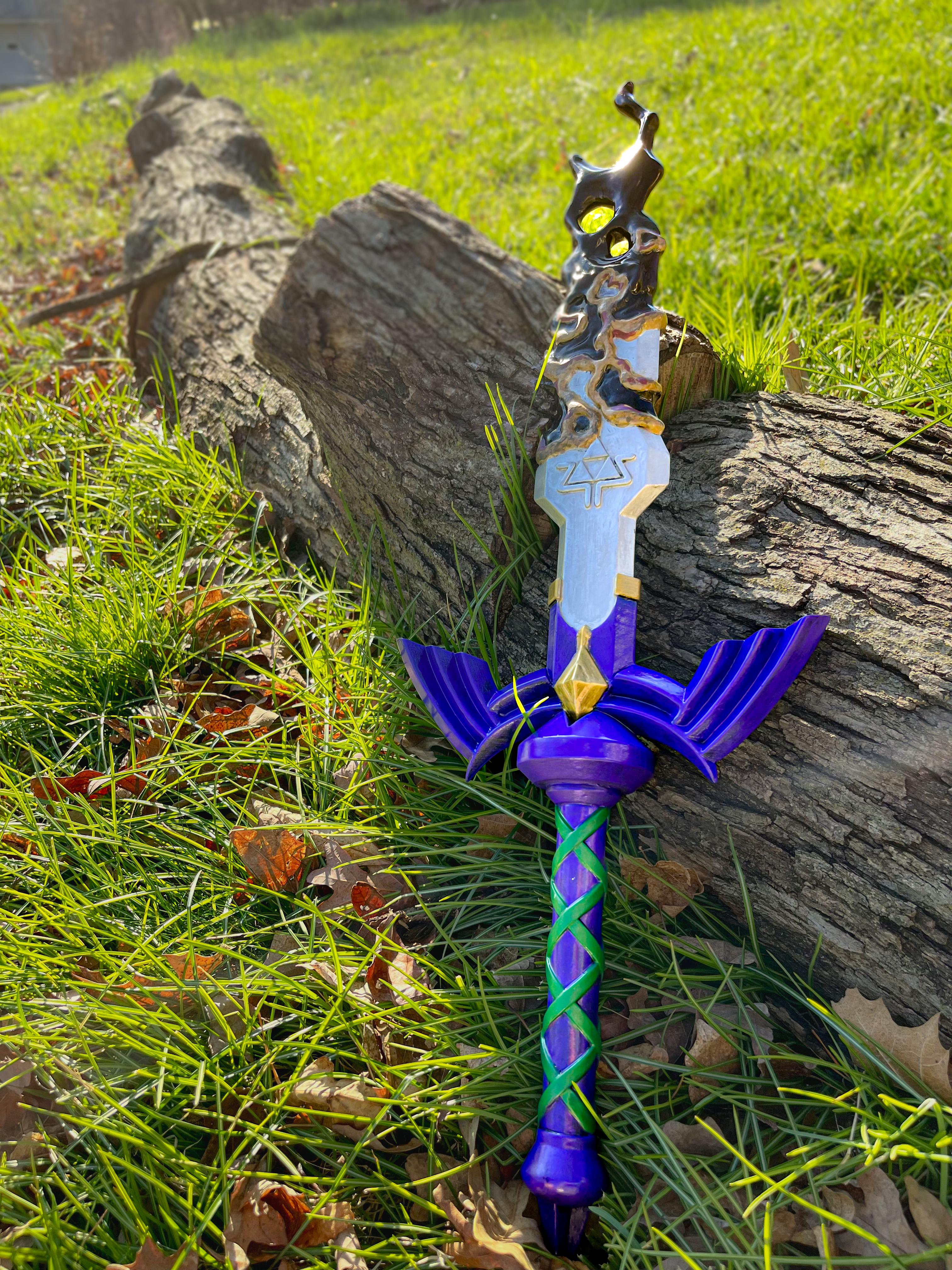I found this article pretty interesting… it seems to contradict the current cooking zeitgeist
deleted by creator
I 100% don’t believe this article.
Me too. There is always rice sludge on the lid of the rice cooker and dribbled down the sides if I don’t do at least one rinse. Definitely better texture too.
The washing away of some(…) microplastics and arsenic sounds nice, and I’m not concerned over the loss of whatever trace minerals white rice would even have.
White rice in the US is enriched with various vitamins, in a sad attempt to replace the nutrition stripped from milling away the outer part and bran. Better to just eat brown rice, though it also has more arsenic. Ah, isn’t modern food lovely.
There are so many whole grains besides rice though. And in theory they aren’t arsenic-laden…
Sure. I just meant as far as rice goes. Quinoa is a good one, or amaranth, buckwheat or even corn.
I believe the article, in the very narrow thing it actually claims, which is that the starches that come off of rice in washing don’t matter much in how sticky the rice is. That’s mostly down to what kind of rice you’re using. Short grain is stickier, longer grains are not.
I’m still 100% going to wash my rice because I don’t want to deal with the cleanup on that extra starch, it gets everywhere. And while I haven’t had bugs in my rice for a while, it happens sometimes.
the starches that come off of rice in washing don’t matter much in how sticky the rice is.
100% blatant bullshit, painfully obvious to everyone who’s ever cooked rice and tried to cut that specific corner.
The article does seem to accurately portray the findings of the peer reviewed research that it links to. Not saying that it’s infallible, but probably worth considering.
Don’t wash your rice for any kind of flavor reasons. Wash your rice because there might be bugs in it.
deleted by creator
Mmmmm crunchy
Extra protein!
Tbf, there’s also bugs in your flour. And dirt in your salt and sugar.
Arguably salt is dirt. You mine it out of the ground afterall (unless it’s sea salt).
It’s almost like these are agricultural products that come from outside.
😱 ew like in the ground?!
Sorry I was trying to channel Brawndo.
Makes sense, it is what plants crave.
We put our rice in the freezer for a day to kill any bugs
I’ve eaten rice all my life and was taught to wash rice before cooking it. I’ve seen and eaten the starchiness that happens when not washing it and the difference is very noticeable. Rice was very gooey and starchy when not washed, versus a nice firm and chewy rice you would get from a restaurant when you do wash. Also washing it can clean out any bugs or dirt. It just made sense imo
I used to never wash my rice, but did notice the rice sludge in the rice cooker so figured, why not, let’s wash it, and no more sludge, go figure. I even bought one of those two piece rice washing bowls from amazon which makes it so much easier. I’m a rice washing convert. Also, rice cookers are the greatest invention since sliced bread.
I didn’t even know a rice washing bowl existed. I just pour rice in my drainer, spray with water, then dump in my pressure cooker.
Rice cookers are nice, but pressure cookers are better. Not just because you use less water, energy and cooking time, the consistency improves too.
ETA: Pressure cookers also result in a more food safe result, which I always forget about. See response re: Bacillus cereus, below.
Depends on the rice cooker. Nothing beats a Zojiroshi.
Best appliance I ever sprung for.
Damn straight, and I get to jam out to “twinkle twinkle little star” every time I turn it on.
The biggest benefit of a rice maker is that it takes care of itself. I pour in the ingredients and click to start. Then it’s just ready when the rest of the meal is, and I have to worry a lot less about timing that or about doing as many things at once.
Pressure cooker is better than a cheap rice cooker, but a higher end rice cooker is about the same. You can do more stuff with the pressure cooker though.
We use a ninja foodie / instapot and it’s great! Consistency comes out nicer and more like Indian style basmati which we prefer.
deleted by creator
How well does a pressure cooker keep a cooked batch of rice throughout the day?
Pretty well. Some might argue better than a rice cooker.
Modern pressure cookers usually change to a warm setting, similar to rice cookers, once the specified cook time has elapsed. Additionally, there are certain pathogens in rice (Bacillus cereus) that can survive in spore form to about 100C, but have been shown to be destroyed in the slightly higher temperatures that can exist under pressure. So, arguably, pressure cooker rice is food safe for longer at ‘warm’ settings than rice cooked in a rice cooker. There’s less chance for pathogens to grow if the food has been better sterilized to begin with, provided no subsequent cross contamination occurs.
What pressure cooker do you use? I just tried today with an Instantpot and the bottom completely solidified after a few hours with the rest of the rice turned into mush. This is with the keep warm setting.
I use an instapot. A few hours might be too long to leave rice in there. I don’t know. I usually at least turn mine off within the first hour or so and do something with it. Pretty sure food safety guidelines don’t recommend leaving rice on warm for hours in any case.
Ah, okay. When I said “throughout the day”, I actually mean throughout the day. As in making a large pot of rice in the morning and eating from that same pot for breakfast lunch and dinner. One of the main appeals of rice cookers is the ability to do that. It may not be recommended by food safety guidelines, but it’s standard practice in any household that consumes a lot of rice and it’s never been a problem.
Mine uses 1.5 c water per cup of rice and takes 15-20 min with an Oster $20 unit. U telling me a pressure cooker is faster, and uses less water than that?
Just over 1 cup water to 1 cup rice (pretty much 1:1, plus the residual moisture from rinsing) for most white rice. 4 minutes at pressure, but probably comparable in practice. (have to wait for it to come to pressure and lose pressure after)
Really, it’s been about consistency for me, but I’ve only compared to a basic Aroma rice cooker. I really liked my rice cooker, but side by side the IP was just better. Seemed like the grains were more consistent all the way through, like the rice cooker grains had a bit of hardness/density at the center and weren’t as fluffy, from what I remember.
Interesting. I don’t have the hard in the center issue with my rice at all and it comes out the same way every time. What kind of rice do you use most? I use jasmine.
Jasmine and basmati, usually. Sometimes, calrose. Rarely, something else.
I never would’ve said it was hard centered per se by itself, just in comparison. Before trying rice cooked both ways side by side, I really liked my rice cooker. But, after getting the pressure cooker, then trying both freshly cooked, this was my impression.
But, it’s been years since I switched over, now. I remember looking into it (the Bacillus cereus issue also came up in reading), comparing, and finally getting rid of the rice cooker as the pressure cooker could do more, better.
I’m so hesitant to buy an IP cuz I don’t need another kitchen device. Maybe I will when the rice cooker dies.
Here are my findings for both, which are interesting, if you’re counting calories and on a diet:
Cooking for consistency, initial consistency of rice cooked in Instant Pot is better, but yields much less rice, Rice Cooker yields almost 25% more rice per oz of dry rice.
1280 calories for 2 cups of uncooked white rice + 4 cups of water. Rice Cooker White Rice recipe yields 48oz of white rice .
1280 calories for 2 cups of uncooked white rice + 2.25 cups of water. IP White Rice recipe yields 32oz of white rice.Now, of course I used less water in the IP than I did in the rice cooker, but it’s the consistency of the rice I was testing.
I’ve also found if I cook a big batch in the rice cooker, and it’s gloopy, I freeze it in individual sized meal weights of 8 oz, and when it defrosts, I can break it up in the plastic bag with my fingers, put it in the microwave for 3 minutes at 50% and it’s perfect.
I don’t understand what you’re trying to say with the yield. The rice didn’t go anywhere. The nutritional value of that pot of rice is the same regardless of how you cook it. Different methods just produce rice that absorb different amounts of water, so the weight is different.
By the time it’s been frozen, thawed and microwaved, wouldn’t rice cooker rice lose water weight and quite possibly be more in line with IP rice initial values? Not to mention all the energy used in the extra steps.
the weight doesn’t change all that much post freeze, and the ease of having readily available frozen rice i can leave in the fridge to thaw overnight for the next days meal, beats having to use (and clean) the rice cooker or ip each time. it works for me, and feels like i’m cheating in how simple it is. one rice cook sets me up for a couple weeks of meals that i use rice with.
These comments are interesting. I have never washed rice, nor even considered it. Now I want to try it out and see what difference I can experience!
Some places mandate added minerals, which will wash off on rinse. Check the packaging.
Not that it’s mission critical if you find washed rice better.My understanding has always been that the fortified grains have been treated so because they stripped out the nutrients earlier, like with bleached flour. I don’t buy these products but I very well could be misinformed.
Cyanide is bad
You mean arsenic?
Lol, yes. Though I guess both are bad
aww but it tastes soo good
Does that wash off? And I always thought (arsenic) was a regional issue. I think from rice grown in SE Asia?
Apparently it’s only a minimal help.
Not sure about the regional thing.
tldr; no
(Yes if you’re a clean freak)
You don’t wash rice for cleanliness. You wash rice to remove excess starch.
Yeah, the study said it has no effect on the stickiness of the rice.
Which is bizarre, because I’ve…seen it. Like repeatedly. And it’s not a subtle difference. When I am lazy and don’t wash my rice, it comes out MUCH gooier. It’s not terrible but it’s significantly different than when I wash it well.
Is this going to make me buy a second rice cooker to compare side by side? Ugh.
The popular press report says that washing doesn’t make a difference. The actual, paywalled study says they did find a highly significant interaction between washing and type of rice, which is a level of statistical sophistication that a food writer might not grasp. In fact, even the scientific authors seem not to have commented much on the interaction.
In their data, it looks like washing 0-amylose glutinous rice makes it more sticky, while washing medium-grain 21% amylose rice even just 3 times makes it less sticky, and that 13% amylose Jasmine rice is just kind of all over the place or not systematically influenced by washing. They didn’t do a big table of adjusted post hocs, so it’s difficult to tell which specific groups are different from which others.
They also cooked the rices differently, using 1:1.3 rice:water for the glutinous and 1:1.6 for the medium and Jasmine, which obviously might confound their observations.
I’ve seen it, too. When I want fluffy individual grains, I rinse the rice first. If I want sticky rice, I don’t rinse it. And it works for all different kinds of rice.
There’s going to be powdered starch on the outside of the grains of rice. If you rinsed it and then added something like corn starch to the water you’d end up with sticky rice.
I agree. Also depends on the rice. Basmati doesn’t seem to stick like most white rices.
But if you read the article you’d have seen that prewashing to remove starch makes no difference. That’s literally the point of this article.
“Culinary experts claim pre-washing rice reduces the amount of starch coming from the rice grains. … Contrary to what chefs will tell you, this study showed the washing process had no effect on the stickiness (or hardness) of the rice.”
And traditionally it was washed for cleanliness. The new wash to remove starch is a modern concept some people clearly started to say to sound smart with no evidence or science and it took off. Read the article
Prefacing this with this is my anecdotal experience, while the results are the same I find it much easier to clean up if I prewash the rice first. I don’t bother presoaking most of the time although some recipes call for it. I pretty much only have basmati and jasmine rice on hand so maybe it also depends on the variety?
I read the article. Why I mentioned it wasn’t for cleanliness.
You don’t wash rice for cleanliness. You wash rice to remove excess starch.
But then you answered it’s to remove starch?
Well whatever it does there is a significant and noticeable difference between washed and unwashed rice.
This article is either wrong in what it’s measuring or has measured it incorrectly.
You just say whatever you want to move the goalpost, instead of just admitting you’re wrong, huh?
You do remove starch my washing it. The article says it doesn’t create less sticky rice.
This was the question in the article. They did a test of unwashed, washed 3 times, and washed 10 times, then compared the rice. The scientists found no difference between the samples. They further speculate that the stickyness level of the rice has to do with the starches that leech from inside the rice.
The article goes on to talk about how, depending on how (and where) the rice is processed, you may want to rinse rice to remove bits of husk, dust, pebbles, and possibly arsenic or microplastics.
Now, having said all of that, take the results of the study with a grain of salt. Washing 3 times isn’t going to do much of anything, and 10 times doesn’t actually tell us that they washed the rice properly. As soon as the starch is wet, it’s sticky. You really have to rinse and agitate the rice, and wash until the water runs clear. Maybe that also leeches some of the more available starch from inside the rice, but the difference is noticeable to anyone who cooks rice on a regular basis. So I’m not going to question the suggested mechanism of action, but I know how to make rice that is and isn’t sticky.
Yeah, this really sounds like some scientists that don’t know how to wash rice.
Im glad they mentioned the debris. My mom always told me they (family when they were in Vietnam) used to wash rice because of the pebbles, dust and bugs that may get into it. The water makes the bugs move which made it easier to pick out. She does it now because of the dust or whatever that may be on it. Never heard of the starch thing until watching youtube videos.
Still going to wash my rice though. Its better this way.
This is the reason I wash rice. Empty hulls, dirt, and bugs naturally float so it’s easier to take them out. We use brown or red rice so it’s not as “clean” as polished white rice. Also, even if the study says washing doesn’t do anything, the fact that the water turns a different color when rinsing shows that something gets removed when washing.
Yeah I wash rice like I wash rice just like I wash all my other fruits and vegetables… To get dirt and other crap off
The article says washing doesn’t have an effect on the starch content (at least any starch that contributes to stickiness)
I’m aware. I read the article.
Thanks deeply_moving_queef
💨
TL; DR,
Only if you’re concerned about removing dust, insects, little stones, bits of husk left from the rice hulling process, arsenic, and 20-40% of microplastics. The amount of those things is influenced by the region in which it’s produced. Stickiness reduction from washing is nominal due to there being two different types of starch. The kind on the surface is different than the variety inside the grain, which is what affects the stickiness.
Not part of the article:
If you’re interested in less sticky rice, try toasting it first. It’s a game changer.
https://www.foodnetwork.com/recipes/food-network-kitchen/toasted-rice-recipe-2104154I’ve never bothered rinsing, but probably will now because of microplastics and arsenic. I’ve never seen impurities like what are listed, but I only buy rice produced in California.
Finally. That’s what I got out of the article as well, but it also confirmed my bias
deleted by creator
Interesting. Though anybody literate in the scientific method knows that one study doesn’t mean much. Whether it’s placebo or not, I notice a difference in the finished product when I wash rice, so I will continue to do so.
Naah, just use it as is. In fact, throw some extra dirt in there and spit in it for good measure. It gives it character.
This can’t be right. They must have something off with their method.
You can even see murky, starchy white water drain out of the bowl the first couple of times you rinse and stir the uncooked rice. If that’s not starch then what is it? The water will come out visibly cleaner with each round of rinsing and stirring.
Sure it could be placebo but I definitely feel that I can tell the difference between unwashed and washed rice.
Argument goes that the easily removed starch is all very short chain polymers, where the stickyness is more due to medium chain and highly branched molecules. I would honestly not be surprised if some of the cloudy water was also talc or other inorganic anti-clumping agents.
The type of rice you’re cooking is also very important.
Not reading because yes you should
Unless you’re using Minute Rice (which is already pre-washed before it goes in the box): Yes.
As a cook with an Asian wife I say: don‘t wash it for Italian risotto and other creamy stuff, but do so for everything else. If it could be dirty rice, rinse it once.
deleted by creator
I usually don’t wash my rice, but one specific type of jasmine rice I use does get a bit gummy if I don’t give it a good rinse. For other types of rice, I usually don’t notice a significant difference.
Do you like eating…. Feces? Dirt? Dead bugs? Feces from dead bugs?
It isn’t just about the arsenic or the quality.
我不吃饭!















